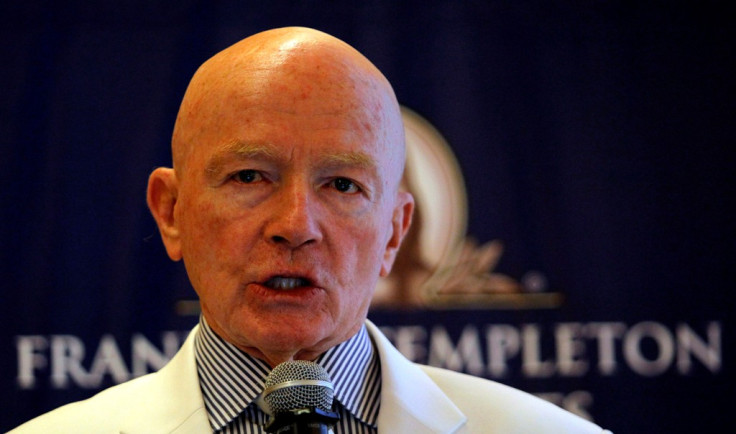Mark Mobius Sees Money Flowing Back to Emerging Economies

Mark Mobius, chairman of Templeton Emerging Markets Group, expects investments into developing economies to revive later in the year following the selloff triggered by the US Federal Reserve's decision to cut its stimulus by a further $10bn.
"People are enjoying what they see as a bull market in the US," Mobius, 77, said.
"As we go forward, we're going to see a lot of overweight positions in the US. So, given the fact that emerging markets are still growing fast, given that they have low debt-to-GDP ratios, given that they have high foreign-exchange reserves, we believe that money will be flowing back in again to emerging markets," Mobius was quoted saying in a report by Bloomberg.
The effectiveness of higher interest rates "depends on the country and it depends on the degree," he said.
"In India it is working OK. The jury is still out on Turkey. The picture becomes a little complicated in certain countries because of upcoming elections. Despite the rise in interest rates, you're not going to see a big, big flow back in, but it will eventually come," he added.
Wells Fargo Securities said in a note to clients: "Higher interest rates in the US are likely to give rise to weaker capital flows into other countries, especially emerging markets, and thereby lead to a depreciation of their currencies."
"This will also raise questions about the ability of a select few countries to finance their current account deficits. Markets are interrelated - both financial and real sides of the economy - despite the claim that interest rates remain low."
Wells Fargo Securities said in a separate note: "Financial markets, not only in the developing world but in advanced economies as well, could clearly remain volatile for the foreseeable future, and economic growth in some individual economies (eg Argentina and Turkey) could weaken markedly over the next few quarters."
"However, we expect financial markets to settle down eventually, and that the global expansion that began in the second half of 2009 will continue through at least to the end of our forecast period (ie end 2015)."
Emerging Markets Rout
Market participants sold stocks worth a whopping $1.87tr the world over in the week to 27 January, ahead of the Fed's two-day FOMC meeting that ended on 29 January.
The recent global selloff dragged down emerging-market currencies with central banks in Turkey, India and South Africa unexpectedly raising benchmark interest rates.
The MSCI Emerging Markets Index has dropped some 6.5% so far this year, as against the 3.5% decline in the S&P 500 Index.
Meanwhile, 24 major developing nation currencies have weakened against the US dollar this year. However, the Indonesian rupiah bucked the trend.
© Copyright IBTimes 2025. All rights reserved.






















